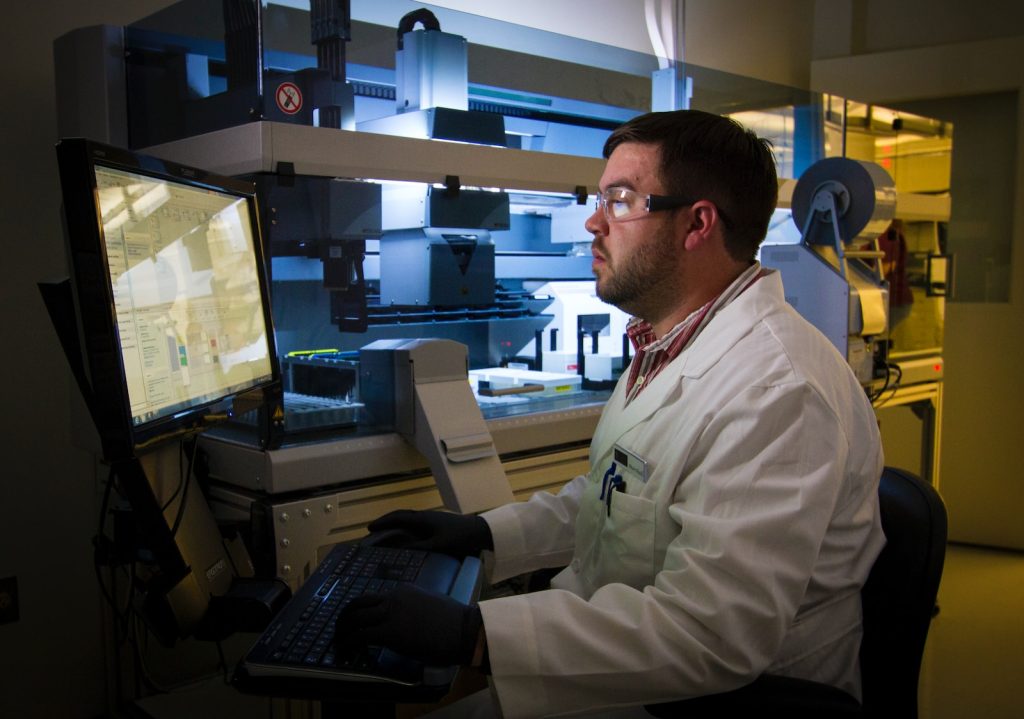Total Testing Solutions: Streamlining Quality Assurance with Comprehensive Approaches
In the fast-paced and ever-evolving landscape of modern industries, ensuring the quality and reliability of products and services is paramount. This pursuit of excellence has given rise to a crucial aspect of operations known as total testing solutions. In this comprehensive guide, we delve deep into the world of total testing solutions, uncovering their significance, benefits, and how they contribute to elevating quality assurance processes. Whether you’re a seasoned professional or a curious learner, this article will equip you with insights and understanding to harness the power of total testing solutions effectively.

Total Testing Solutions: A Holistic Approach to Quality Assurance
Total testing solutions, often referred to as comprehensive testing strategies, embody a holistic approach to quality assurance. These solutions aim to evaluate every aspect of a product or service to ensure that they meet the highest standards of quality, functionality, and reliability. Unlike traditional testing methods that focus on specific elements, total testing solutions take a more comprehensive and inclusive route.
Understanding the Core Components of Total Testing Solutions
In the realm of quality assurance, the term “total” signifies the encompassing nature of these testing solutions. Here are some essential components that contribute to the holistic approach:
- Functional Testing: Ensuring that the product’s features and functionalities work as intended.
- Performance Testing: Evaluating the product’s performance under different conditions and loads.
- Security Testing: Identifying vulnerabilities and ensuring data protection.
- Compatibility Testing: Verifying the product’s compatibility across various devices and platforms.
- Usability Testing: Assessing the user-friendliness and overall user experience.
- Regression Testing: Detecting any unintended side effects of code changes.

Why Total Testing Solutions Matter?
Total testing solutions hold immense significance in the quality assurance process. They offer several compelling benefits that contribute to the overall success and reputation of a business or organization. Let’s explore some of these key advantages:
Enhanced Product Quality and Reliability
By conducting thorough and comprehensive testing, businesses can identify and address potential issues early in the development cycle. This leads to higher product quality, enhanced reliability, and reduced chances of defects reaching the end-users.
Cost and Time Efficiency
While total testing solutions involve a comprehensive approach, they actually save time and resources in the long run. Detecting and fixing issues at an early stage prevents costly rework and minimizes delays in product delivery.
Customer Satisfaction and Loyalty
Products that undergo rigorous testing are more likely to meet customer expectations and perform reliably. This translates to higher customer satisfaction, positive reviews, and increased customer loyalty.
Mitigation of Risks
Comprehensive testing helps identify potential risks and vulnerabilities, allowing businesses to take proactive measures to mitigate them. This is especially critical in industries where safety and security are paramount.
Competitive Edge
Businesses that consistently deliver high-quality products gain a competitive edge in the market. Customers recognize and trust brands that prioritize quality, leading to a stronger market position.
Harnessing the Power of Total Testing Solutions
The Total Testing Solutions Framework
Implementing total testing solutions requires a structured approach that integrates various testing methodologies. Here’s a simplified framework to guide you through the process:
- Requirement Analysis: Understand the project’s objectives and requirements thoroughly.
- Test Planning: Define the scope, objectives, resources, and timelines for testing.
- Test Design: Create detailed test cases and scenarios based on requirements.
- Test Execution: Implement the test cases, record results, and identify defects.
- Defect Management: Prioritize and track defects, collaborate with development teams for resolutions.
- Regression Testing: Continuously test to ensure new changes don’t impact existing functionality.
- Reporting and Analysis: Generate comprehensive reports and analyze testing results.
- Feedback Loop: Incorporate feedback from testing to improve future testing cycles.
Real-world Success Story: Streamlining E-commerce Quality Assurance
One prominent example of the effectiveness of total testing solutions can be observed in the e-commerce industry. A leading online retailer aimed to enhance the quality of its website and mobile app to provide users with a seamless shopping experience.
By implementing total testing solutions, the company conducted rigorous testing across devices, browsers, and platforms. This approach helped them identify compatibility issues, optimize website performance, and enhance user interfaces. As a result, the retailer witnessed a significant reduction in customer complaints, improved conversion rates, and an overall boost in customer satisfaction.
FAQs About Total Testing Solutions
Q: How do total testing solutions differ from traditional testing methods?
A: Traditional testing methods focus on specific aspects of a product, while total testing solutions take a holistic approach by evaluating all components comprehensively.
Q: Can small businesses benefit from total testing solutions?
A: Absolutely! Total testing solutions offer benefits for businesses of all sizes, helping them ensure product quality, customer satisfaction, and competitiveness.
Q: What role does automation play in total testing solutions? A: Automation plays a crucial role in executing repetitive test cases, saving time and resources. It also enables rapid testing during iterative development cycles.
Q: How often should regression testing be performed within total testing solutions?
A: Regression testing should be performed after every code change to ensure that new modifications haven’t impacted existing functionality.
Q: Are there industries where total testing solutions are particularly vital?
A: Yes, industries such as healthcare, finance, aerospace, and automotive rely heavily on total testing solutions to ensure safety, security, and compliance.
Q: How can businesses measure the ROI of implementing total testing solutions?
A: Businesses can measure ROI through factors like reduced defect rates, improved customer satisfaction, and savings in rework costs.
Embracing Excellence Through Total Testing Solutions
In a rapidly evolving business landscape, quality assurance remains a non-negotiable aspect of success. Total testing solutions offer a comprehensive and strategic approach to ensuring high-quality products and services, resulting in enhanced customer satisfaction, brand reputation, and competitiveness. By embracing the principles of total testing solutions and tailoring them to your specific needs, you can elevate your quality assurance processes to unprecedented heights.
As you embark on this journey towards quality excellence, remember that continuous learning and adaptation are key. Stay updated with the latest testing met







